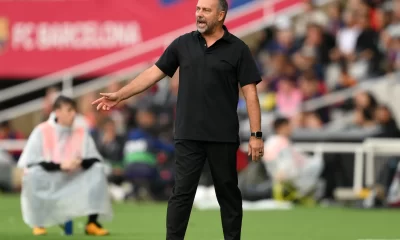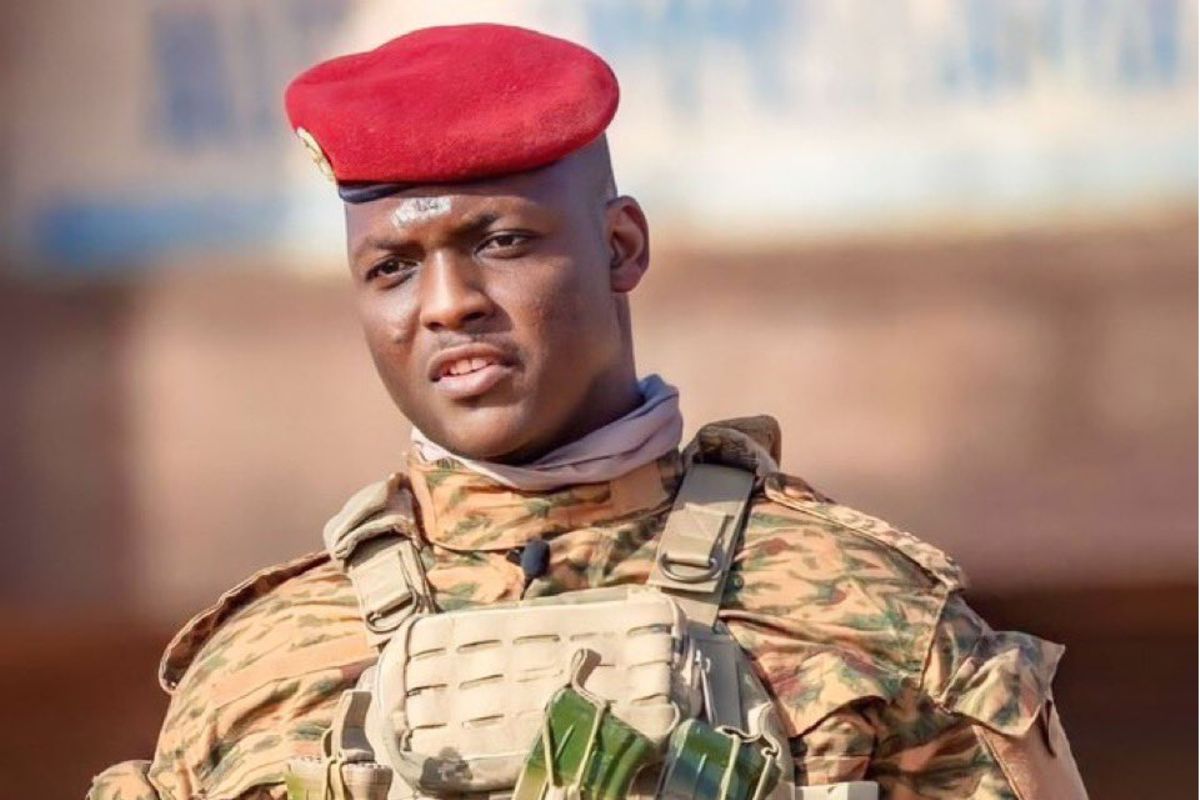Burkina Faso’s military leader, Captain Ibrahim Traoré, has made a bold declaration, asserting that he is unafraid of facing the same fate as revolutionary figures like Libya’s Muammar Gaddafi and Burkina Faso’s own Thomas Sankara—both of whom were assassinated for challenging Western influence in Africa.
“They keep telling me I will die like Gaddafi, Thomas Sankara, or any young leader that tried to make Africa better. I am not scared, and I won’t regret dying for my people,” Traoré stated in a recent address, reinforcing his commitment to resisting neocolonialism.
Since seizing power in September 2022 through a military coup, Traoré has positioned himself as a fierce critic of Western influence in Africa.
One of his administration’s first major moves was cutting long standing military ties with France, which had historically maintained a strong presence in Burkina Faso’s security operations.
French troops were expelled from the country, signaling a strategic pivot toward strengthening alliances with other African nations advocating for self-reliance and reduced Western intervention.
READ ALSO: Burkina Faso’s President Traoré survives second assassination attempt amid growing instability
Under Traoré’s leadership, Burkina Faso has aligned itself more closely with Mali and Niger—two other Sahel nations that have also severed military cooperation with France.
The trio has formed the Alliance of Sahel States (AES), a regional pact aimed at countering terrorism and fostering economic independence without Western military involvement.
Traoré’s latest comments highlight his awareness of the dangers associated with his defiant stance.
Africa has a history of revolutionary leaders being overthrown or assassinated, particularly those who sought to break free from Western economic and political dominance.
Thomas Sankara, who ruled Burkina Faso from 1983 until his assassination in 1987, remains a key figure in the country’s political history. His anti-imperialist policies and push for self-sufficiency made him a target of both internal and external forces.
Similarly, Muammar Gaddafi of Libya, who led the country for over four decades, was ousted and killed in 2011 following a NATO-backed uprising.
Gaddafi had been a vocal advocate for African unity and economic independence, proposing a pan-African currency that could have threatened Western financial control over the continent.
By drawing parallels between himself and these past leaders, Traoré appears to acknowledge the threats looming over his leadership while reaffirming his resolve to push forward with his vision for Burkina Faso’s sovereignty.
Traoré’s comments reflect a broader trend of rising resistance to Western influence across Africa. In recent years, many countries have sought to reclaim control over their resources, security, and governance, rejecting traditional alliances with former colonial powers.
The expulsion of French troops from Burkina Faso, Mali, and Niger has been emblematic of this shift.
While critics argue that these moves could isolate Burkina Faso diplomatically and economically, supporters view Traoré’s policies as a necessary step toward self-determination and breaking free from historical dependency on Western nations.
As the political landscape in West Africa continues to evolve, Traoré’s defiance marks a significant chapter in the region’s push for sovereignty.
Whether his leadership will survive the challenges that come with opposing powerful global interests remains an open question.

 Football6 days ago
Football6 days ago
 Entertainment5 days ago
Entertainment5 days ago
 Football7 days ago
Football7 days ago
 Business4 days ago
Business4 days ago
 Football7 days ago
Football7 days ago
 Football5 days ago
Football5 days ago
 Crime6 days ago
Crime6 days ago
 Football6 days ago
Football6 days ago

